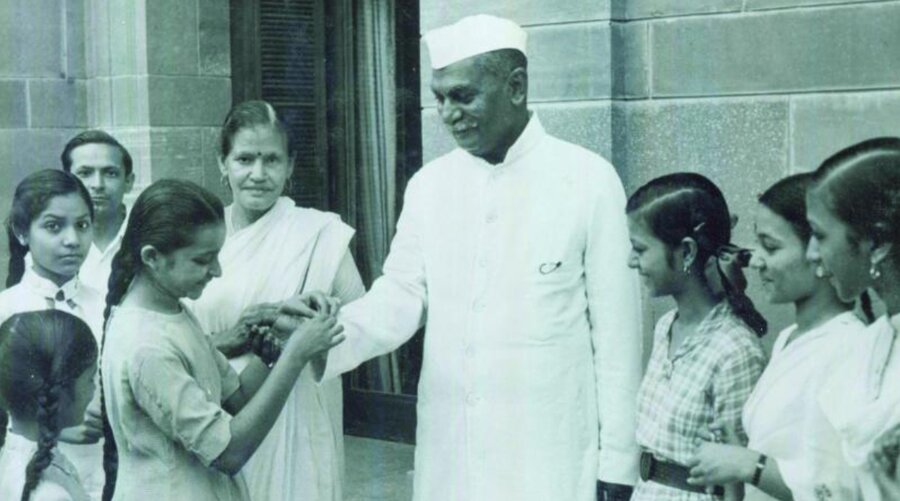Introduction
Dr. Rajendra Prasad( 3 December 1884 – 28 February 1963) was the first President of India, serving two consecutive terms from 1950 to 1962. He was a freedom fighter, political leader, and a lawyer by profession. He was a close associate of Mahatma Gandhi and played a key role in India’s struggle for independence. He was also a member of the Constituent Assembly that drafted the Indian Constitution.
Early Life and Education
Dr. Rajendra Prasad was born on December 3, 1884, in the village of Ziradai in the Siwan district of Bihar. He completed his primary education in his village and then went to Patna to study at the T.K. Ghosh Academy. He then went on to study at the Calcutta University and later at the University of London. He obtained his Bachelor’s and Master’s degree in law from the University of London.
Political Career
Dr. Rajendra Prasad’s political career began in 1917 when he became a member of the Indian National Congress. He was a strong supporter of Mahatma Gandhi and his non-violent movement for Indian independence. He participated in the Non-Cooperation Movement in 1920 and was imprisoned for a year. He was also arrested during the Salt Satyagraha in 1930 and served a prison sentence of three years.
After India’s independence in 1947, Dr. Rajendra Prasad was elected as the President of the Constituent Assembly, which was responsible for drafting the Indian Constitution. He played a key role in the drafting process and was instrumental in ensuring that the Constitution reflected the values of secularism, democracy, and social justice.
In 1950, Dr. Rajendra Prasad was elected as the first President of India and served two consecutive terms until 1962. He was the longest-serving President of India and played a crucial role in the establishment of democratic institutions in the country.
Contributions to Indian Society
Dr. Rajendra Prasad made significant contributions to Indian society in various fields. He was a strong advocate of education and worked towards the establishment of educational institutions in the country. He was also a patron of the arts and promoted the development of Indian literature and culture.
He was a strong advocate of rural development and worked towards the upliftment of the rural poor. He was also a strong supporter of the cooperative movement and helped establish the Indian Cooperative Union.
Legacy
Dr. Rajendra Prasad’s legacy continues to be remembered and celebrated in India. He is remembered as a dedicated freedom fighter who played a key role in India’s struggle for independence. He is also remembered as the first President of India and as a key figure in the establishment of democratic institutions in the country.
His contributions to Indian society in the fields of education, arts, rural development, and the cooperative movement continue to be remembered and celebrated. Several educational institutions and cultural centers have been named after him in recognition of his contributions.
Conclusion
Dr. Rajendra Prasad was a remarkable leader who played a key role in India’s struggle for independence and in the establishment of democratic institutions in the country. He was a dedicated freedom fighter, a skilled lawyer, and a patron of the arts. His contributions to Indian society in various fields continue to be remembered and celebrated. He will always be remembered as the first President of India and as a leader who dedicated his life to the service of the nation.
READ MORE
- Dr. Bhimrao Ramji Ambedkar: The Architect of Modern India
- Three Pillars of the Indian Constitution: Liberty, Equality, and Fraternity
- Constitution Day Of INDIA: Celebrating the Birth of India’s Democratic Identity
- Indian Independence Day: A Look Back at the Struggle for Freedom
- Indian Republic Day: A Celebration of Unity and Diversity
- Gandhi Jayanti: Non-violence Legacy
- International Men’s Day

